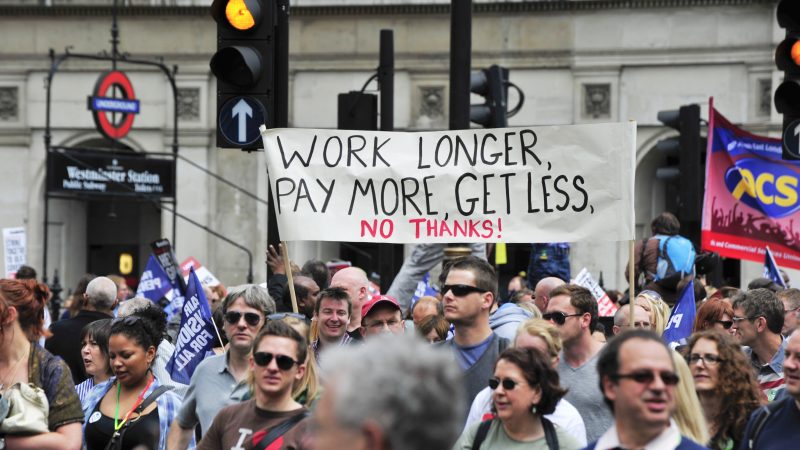In reforms designed to shift the balance of power from companies to workers, a system of “compressed hours”, which lets an employee work their contracted week’s hours in four days rather than five, will be included in the package of new rights for workers.

Workers are set to be given new rights to demand a four-day week, under Labour’s workers’ rights reforms being championed by Deputy Prime Minister Angela Rayner.
In reforms designed to shift the balance of power from companies to workers, a system of “compressed hours”, which lets an employee work their contracted week’s hours in four days rather than five, will be included in the package of new rights for workers.
The Labour government has denied that it would impose the working patterns on businesses. While companies are presently under no obligation to agree to flexible working patterns, under the proposed changes companies will be legally obliged to offer flexible working from day one except where it is “not reasonably feasible”.
Joe Ryle, the director of the 4 Day Week campaign, said: “This is a welcome move from the government, which recognises that the future of work we are heading for is a four-day week for all. However, these proposals would only allow workers to compress their working hours rather than reduce them, which we have found is key for improving work-life balance and also maintaining productivity.
“Compressing the same amount of hours into four days rather than five can be an important first step on the road to a true four-day week – but reducing overall working hours is crucial.”

Workers could be granted the right to ask bosses to compress their hours into a four-day week as part of the government’s New Deal for Working People, a report suggests.
The Telegraph reports that the plan could be included in the package of new rights for workers due to reach parliament this autumn, after Labour pledged progress on its New Deal for Working People within its first 100 days.
Labour promised to offer workers a four-day week in its 2019 manifesto under then-leader Jeremy Corbyn. However, that plan would have seen the average working week cut to 32 hours with no loss of pay, while the rumoured proposal from the government would see people work their usual five days’ worth of hours but over four days.
The party’s ‘Making Work Pay’ 2024 election document, summing up the most recent version of its planned New Deal package, had pledged to “help ensure workers can benefit from flexible working, including opportunities for flexi-time contracts and hours that better accommodate school terms where they are not currently available”. It vowed to make “flexible working the default from day one for all workers, except where it is not reasonably feasible.”
It comes amid fresh controversy around other areas of the New Deal for Working People, including granting workers the right to switch off.
READ MORE: Liz Kendall rejects four-day week as government unveils back-to-work drive
When asked if she would support a four-day working week by Nick Ferrari on LBC, Skills minister Baroness Jacqui Smith said: “What we’ve said is that we think that flexible working is actually good for productivity. What we’re talking about is the type of flexible working that enables you to use compressed hours ‒ so perhaps instead of working eight hours a day for five days, you work ten hours a day for four days.
“You’re still doing the same amount of work, but perhaps you’re doing it in a way that enables you, for example, to need less childcare, to spend more time with your family. That encourages more people into the workplace.”
A spokesperson at the Department for Business and Trade said: “We have no plans to impose a four-day working week on employers or employees.
“Any changes to employment legislation will be consulted on, working in partnership with business.
“Our Make Work Pay Plan is designed around increasing productivity and creating the right conditions for businesses to support sustained economic growth. Many employers already provide good, family-friendly conditions for their workers because they know that doing so improves morale and retention.
“We are working in close partnership with business and civil society to find the balance between improving workers’ rights while support the brilliant businesses that pay people’s wages.
 |
| 1933 |
No comments:
Post a Comment